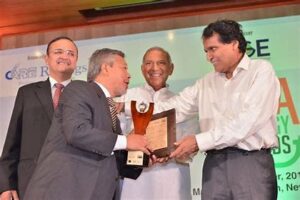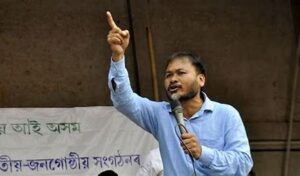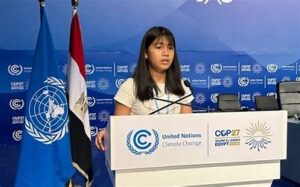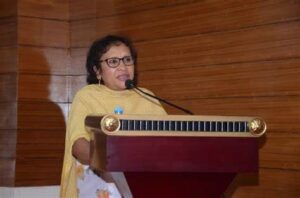Bamboo, often called the “green gold” of the Northeast, has long been a symbol of resilience, tradition, and economic potential. Among those who have worked tirelessly to unlock bamboo’s true potential for sustainable development, Dr. Kamesh Salam from Manipur stands out as a visionary leader. Through decades of work, Dr. Salam has promoted bamboo as a catalyst for rural empowerment, environmental conservation, and sustainable livelihoods, not just in Manipur, but across India and Southeast Asia.
In this blog, we explore Dr. Kamesh Salam’s life, contributions, and lasting impact on bamboo-based development.
Early Life and Background
Born and raised in Manipur, a land where bamboo is intricately woven into daily life, Dr. Kamesh Salam grew up witnessing the versatile uses of bamboo firsthand. From housing structures to handicrafts, bamboo was deeply embedded in the cultural and economic life of the Manipuri people.
Dr. Salam pursued higher education with a focus on environmental science, rural development, and sustainability. His academic background, combined with his lived experiences, shaped his mission to elevate bamboo from a traditional craft material to a major driver of sustainable economic growth.
Vision: Bamboo as a Tool for Sustainable Development
Dr. Salam has long believed that bamboo is more than just a plant; it is a solution to some of the most pressing issues of our times—poverty, unemployment, deforestation, and climate change. His approach is rooted in the idea that by promoting bamboo cultivation, processing, and enterprise development, communities can build sustainable, eco-friendly economies.
Key elements of his vision include:
- Community Empowerment: Training rural artisans and farmers to turn bamboo into high-value products.
- Sustainability: Encouraging responsible bamboo harvesting and farming techniques.
- Innovation: Introducing new technologies and designs to upgrade traditional bamboo industries.
- Market Linkages: Connecting rural bamboo producers with national and international markets.
Major Contributions and Initiatives
1. Founding of the South Asia Bamboo Foundation (SABF)
One of Dr. Salam’s most significant achievements is the founding of the South Asia Bamboo Foundation (SABF), headquartered in Guwahati, Assam. Established with the mission to promote the bamboo sector across South Asia, SABF works on:
- Capacity building through training programs.
- Policy advocacy to promote bamboo-friendly regulations.
- Research and development to explore innovative bamboo applications.
- Enterprise incubation to support bamboo-based startups.
Through SABF, Dr. Salam has impacted thousands of artisans, farmers, and entrepreneurs across Northeast India and neighboring countries like Bangladesh, Bhutan, and Nepal.
2. Organizing the World Bamboo Congress
Dr. Salam played a key role in organizing the 8th World Bamboo Congress in India in 2009, a landmark event that brought together bamboo experts, scientists, entrepreneurs, and policymakers from around the world. This global exposure helped spotlight India’s rich bamboo resources and potential.
The event was instrumental in:
- Showcasing India’s bamboo-based innovations.
- Encouraging cross-border collaborations.
- Building momentum for bamboo-based policy reforms in India.
3. Promoting Bamboo for Climate Action
Understanding bamboo’s potential as a carbon sink, Dr. Salam has been a strong advocate for integrating bamboo plantations into climate change mitigation strategies. Bamboo absorbs carbon dioxide at a high rate and regenerates quickly, making it a vital tool for combating global warming and land degradation.
Through various platforms, he has emphasized bamboo’s role in:
- Afforestation and reforestation programs.
- Sustainable building and construction.
- Eco-friendly product innovation.
Bamboo Livelihood Programs in Manipur
Dr. Salam has been particularly active in his home state of Manipur. His programs focus on empowering local communities, especially women and marginalized groups, through bamboo-based training and micro-enterprise development.
Some of the major outcomes include:
- Training Centers: Establishment of bamboo craft training centers in rural areas.
- Skill Development: Workshops on bamboo furniture making, handicrafts, and modern design techniques.
- Enterprise Support: Helping artisans form cooperatives and self-help groups to access credit, technology, and markets.
- Youth Engagement: Encouraging young people to see bamboo not just as a traditional craft but as a modern career opportunity.
These initiatives have led to increased income, greater employment opportunities, and a revival of traditional craftsmanship in Manipur.
Recognitions and Awards
Dr. Kamesh Salam’s pioneering efforts have not gone unnoticed. He has received several accolades nationally and internationally, including:
- World Bamboo Ambassador by the World Bamboo Organization (WBO).
- Recognition Awards for his contribution to rural livelihoods and sustainability.
- Invitations to global forums to speak about bamboo’s role in sustainable development.
His work continues to inspire governments, NGOs, and private sector players to invest in bamboo-based initiatives.
The Future of Bamboo: Dr. Salam’s Continuing Mission
Despite the progress, Dr. Salam believes that bamboo’s potential remains largely untapped. His future goals include:
- Expanding bamboo education and research programs in universities.
- Developing bamboo as a mainstream construction material for urban housing.
- Promoting bamboo textiles and bioplastics as sustainable alternatives.
- Strengthening bamboo value chains from farm to market.
Dr. Salam emphasizes that policy support, technological innovation, and public awareness are critical for bamboo’s success in the future.
Conclusion
Dr. Kamesh Salam’s journey from a boy in Manipur’s bamboo groves to a global advocate for bamboo livelihoods is a testament to the transformative power of vision and persistence. Through his work, he has not only enhanced the economic prospects of countless rural families but also placed bamboo at the heart of sustainable development conversations worldwide.
In an era where the world is searching for eco-friendly solutions, Dr. Salam’s mission stands as a shining example of how traditional knowledge, when combined with modern innovation, can create a greener, fairer, and more prosperous future.






